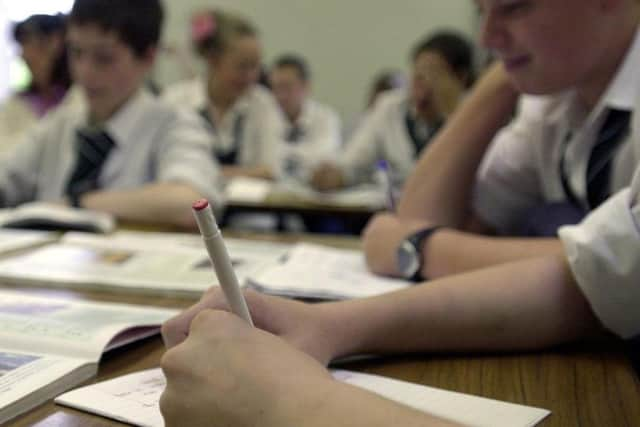Leeds school children ‘less happy and more anxious’ than 10 years ago
and live on Freeview channel 276
An annual study into the health and wellbeing of children in Leeds has shown an increase in the number of children saying they felt ‘anxious and stressed’ most days, while the number of children who report being happy has decreased in the past decade.
A leading children’s mental health charity has called the figures ‘worrying’, adding that pressures around social media can have ‘a big impact’ on young people’s mental health.
Advertisement
Hide AdAdvertisement
Hide AdThe My Health My School survey received 17,397 responses from 188 schools in the city for the 2018/19 academic year, and has been used to track the health and wellbeing of children in the city.


It showed only 62 percent of year 11 pupils said they felt happy every day or most days, compared to 82 percent in 2009/10.
Meanwhile 24 percent of all children surveyed reported feeling stressed or anxious most days or every day, while numbers specific to Year 11 pupils saw an increase from 28 percent in 2012/13 to 48 percent last year.
The figures have led child mental health campaigners calling for the UK’s education system to be remodelled towards those who are suffering.
Advertisement
Hide AdAdvertisement
Hide AdTom Madders, Director of Campaigns at the YoungMinds children’s mental health charity, said: “We know that there has been an increase in emotional disorders, such as anxiety and depression, in recent years. It is, however, still worrying to see that this report shows so many young people experience anxiety and stress almost every day.
“The factors behind mental health problems are often complex, but we know that stress at school, bullying, concerns about body image, and the pressures associated with social media can all have a big impact. Young people coming up to GCSEs can face extra pressure as they approach their exams and start to make choices about their future.”
The figures follow a government pledge in late 2017 to improve the provision of mental health services in the nation’s schools.
Mr Madders added: “While it’s positive that the government is planning to roll out extra mental health support for schools, it’s important that we look at the factors that are causing pupils to feel anxious or stressed. We need to rebalance the education system to make sure that all schools have the support, training and resources they need to make wellbeing a genuine priority and to get early support for young people who need it.”
Advertisement
Hide AdAdvertisement
Hide AdA Leeds City Council statement claimed there were a variety of reasons which can contribute to stress and anxiety whilst students are studying for GCSEs.
While admitting problems with anxiety and stress could be linked to exam pressure, it also suggested wider issues in a student’s life also need to be taken into consideration, such as family conflict, poverty, friendship groups and social media. It also listed a number of support systems available for young people via their schools.
Phil Mellen, Leeds City Council’s deputy director for learning, said: “Leeds City Council works closely with schools to provide assistance to a range of programmes and initiatives that are taking place and being delivered by different group and organisations to support young people and their well-being.
“Children spend a lot of time through the week at school, and it is very important that both teachers and school staff are supported to recognise the signs if a pupil could be suffering from anxiety and stress.
Advertisement
Hide AdAdvertisement
Hide Ad“This forms part of the different programmes and access to specialist services that are also available in the city to help students build resilience, think about mental health and be able to talk about how they feel and also to show empathy to those around them.”